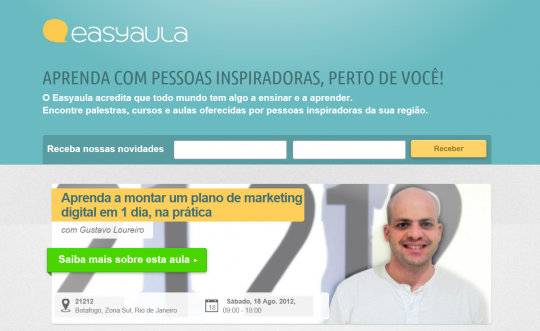E-lite Education – Disrupting the Standard Educational Models
“Big breakthroughs happen when what is suddenly possible meets what is desperately needed.â€
-Thomas Friedman-
While attending the Internet Cowboys Unconference in Jackson, Wyoming – a gathering of some of the greatest minds in the technology world – I noticed that the evolution of educational models was the hot topic of discussion. I was fascinated to be part of that discussion and what follows are some insights.
Most importantly, however, is the vastly improving quality of online education. What was once a one-to-many broadcast model has become an interactive, collaborative experience. Some innovators are using gamification techniques to make online learning more interesting and even addictive using such game-inspired ideas as using avatars and creating 3D virtual rooms in which students can “talk†with the instructor or breakout into small groups. A 2010 study conducted by the US Department of Education detailed a study comparing online and face-to-face learning; convincingly demonstrating that online methods are on average as effective, if not more so, than in person methods. And the new techniques certainly appeal to the new digital-obsessed generation.
The recent surge in investment by physical universities, including Harvard, Yale, Stanford and MIT is yet more proof that e-learning is considered more legitimate – and lucrative – than ever.
The recent surge in investment by physical universities, including Harvard, Yale, Stanford and MIT is yet more proof that e-learning is considered more legitimate – and lucrative – than ever. As one Cal State University official put it†We don’t want to be Blockbuster when Netflix is coming in.â€Â As such, some brick-and-mortar universities are developing their own distance learning technology, while others are partnering with online companies such as Coursera and Udacity.
Coursera is a social entrepreneurship company, started by two Stanford professors, that is partnering with some of the world’s top universities to offer courses online for anyone to take for free. The website offers a wide range of topics, spanning from the humanities, to medicine, to computer science. The site already has over 1.5 million users, and has secured an impressive $22mm in funding to date. Peer-to-peer feedback and assessments, extensive interactive exercises, and tailored learning are some of the techniques used to allow students to learn – all on their own time.
Udacity is a ground-breaking venture in online education. Founded by three roboticists, the program offers project-oriented courses, in which a student works toward a clear goal rather than learning basic principles. Not only do students learn by solving challenging problems alongside world-renowned university instructors, upon completion Udacity offers a range of certification options that are recognized by major technology companies that actively recruit from the student body.
Read more: Udacity – The Future of Education (Forbes)
Arguably, one of the biggest disrupters in education is The Minerva Project, the first for-profit elite university to be launched in a century. Welcoming its first class of students in September 2014, the university will admit students based on strict intellectual standards, and will deliver classes via the internet from esteemed professors from around the world. Students would live in urban dorms scattered across the globe’s cities, and move to a new location each year.
Read more: Can This ‘Online Ivy’ University Change the Face of Higher Education? (The Atlantic)
These models are also moving south, EasyAula , out of Brazil, is an example of the new generation of startups that are providing distinct online education opportunities to the masses via the internet and other digital platforms. This site is an online booking platform for classes, which connects students with specialized courses in their field of interest. It is in position to change the way the new generation of students locate opportunities for education. I am excited to be working with the founder of EasyAula, Diego Alvarez, as he develops the site under the mentorship of 21212 Digital Accelerator, and I am confident it will be a huge success.
For nine years, the Fundación Cisneros has utilized digital technologies for the advancement of education in Latin America by providing teacher training to educators via the web in its program AME (Actualización de Maestros en Educación). To date more than 1,500 schools have participated in this program, and more than 13,000 teachers have completed the courses successfully. We look forward to learning from the new and emerging digital educational platforms to expand our reach in the region.
For more on how innovators are making education attainable worldwide, check out this video from the Ted conference in Edinburgh, Scotland this past June.
You’ve heard of crowdfunding, and you’ve heard of crowdsurfing – but did you ever think they would combine? Check out Queremos! A new crowdfunding venture out of Brazil, bringing popular bands in concert to venues that would not otherwise make the tour list. Who would you want to bring to your hometown?
Queremos! Crowdfunding for concerts - YouTube Link

